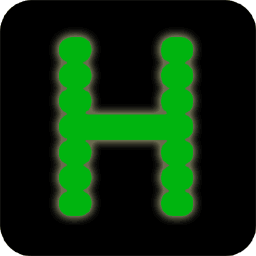Why are you changing the way Hercules is built?
There are a number of benefits to the recent changes to the process and tools used to build Hercules:
- The recent changes allow a single build process and tool set to be used to build Hercules for UNIX-like and Windows systems.
- The new process automatically builds any packages required by Hercules if they are not installed on the target system. This is especially valuable to Windows builders, who formerly had to search for installable compatible copies of BZip2, PCRE, and Zlib.
- The changes allow for use of build tools other than GNU Autotools (on UNIX-like systems) or NMake (Windows, and a tool that Microsoft has deprecated). Ninja has been tested on UNIX-like systems, and MSBuild works fine too. It is expected that Apple Xcode can be used too, but we await further testing.
There are other benefits as well. Some are target-system-specific. See "Why should I use CMake to build Hercules on UNIX-like systems?" for the benefits to builders using UNIX-like systems, and see "Why should I use CMake to build Hercules for Windows?" for the benefits to Hercules builders running Windows.
What happened to using autogen.sh and configure to build Hercules on UNIX-like systems?
They are still there. You may continue to use GNU Autotools (autogen.sh, configure, and make) to build Hercules for the moment. But the time will come when the autogen.sh and configure build for Hercules is deprecated and, later, removed. Much like Cygwin/MinGW builds for Windows.
What happened to using makefile.bat to build Hercules on Windows systems?
The NMake-based makefile.bat build script still there. You may continue to use makefile.bat at a command prompt or run it from the Visual Studio solution in the source directory to build Hercules for the moment. But the time will come when the makefile.bat build for Hercules is deprecated and, later, removed. Microsoft has already deprecated the NMake build tool used by makefile.bat, and the Microsoft script win32.mak, required by makefile.bat, is no longer distributed with current versions of Visual Studio.
Can I still use the 1Stop script?
Yes.
And if you use 1Stop on a UNIX-like system,
you will use GNU Autotools
(autogen.sh, configure, and make)
to build Hercules.
If you use 1Stop on a Windows system,
you will use the NMake-based makefile.bat script
to build Hercules.
What if I like 1Stop and want to build with CMake?
If you are building on a UNX-like system,
use the 1Stop-CMake script.
This script builds Hercules in the same manner as 1Stop,
but it uses CMake rather than GNU Autotools to create the build files.
There is no equivalent to 1Stop-CMake for building Hercules on a Windows system, mostly because most of the functionality of 1Stop in a Windows environment has been incorporated into the CMake build scripts themselves. See "QUICK START: Build Hercules for Windows Using CMake" for the steps.
Can I still build Hercules using Visual Studio?
Yes.
The CMake scripts for Hercules can create a Hercules Visual Studio solution in the build directory that may be opened in the Visual Studio application. Hercules can be built and the complete set of tests run from within the Visual Studio application.
You can find instructions in the QUICK START at "Build using the Visual Studio IDE". Note that you must still run the CMake configure step from a command prompt. Use of the CMake capabilities added to Visual Studio 2017 Community edition has not been tested.
Do the CMake scripts for Hercules work on Apple?
Maybe.
The CMake scripts for Hercules should support Xcode, Apple's Integrated Development Environment for the mac and for Apple's other platforms. It should also support a Hercules build using Homebrew.
We welcome testers. An early test report showed that the CMake script completed successfully, SoftFloat-3a built successfully, but Hercules failed to compile.
I tried it, but it did not work. What should I do?
Please see What To Do When it Fails. And while the issue is being sorted out, you can build using autogen.sh and configure on UNIX-like systems or, on Windows systems, using makefile.bat and or the Visual Studio solution in the Hercules source directory.
I reported a problem. When will it get fixed?
The CMake scripts for Hercules, like all of Hercules, is supported by volunteer developers, conscientious programmers who hate to see their work fall short. But all of us have other demands on our time, so things may not be corrected as quickly as any of us would wish.
And of course, if you see the solution to an issue and are willing to share, we welcome your contribution.
This web page Copyright © 2017-2018 by Stephen R. Orso.
This work is licensed under the Creative Commons Attribution-
ShareAlike 4.0 International License.
To view a copy of this license,
visit
http://creativecommons.org/licenses/by-sa/4.0/
or send a letter to Creative Commons, PO Box 1866, Mountain View, CA 94042, USA.
